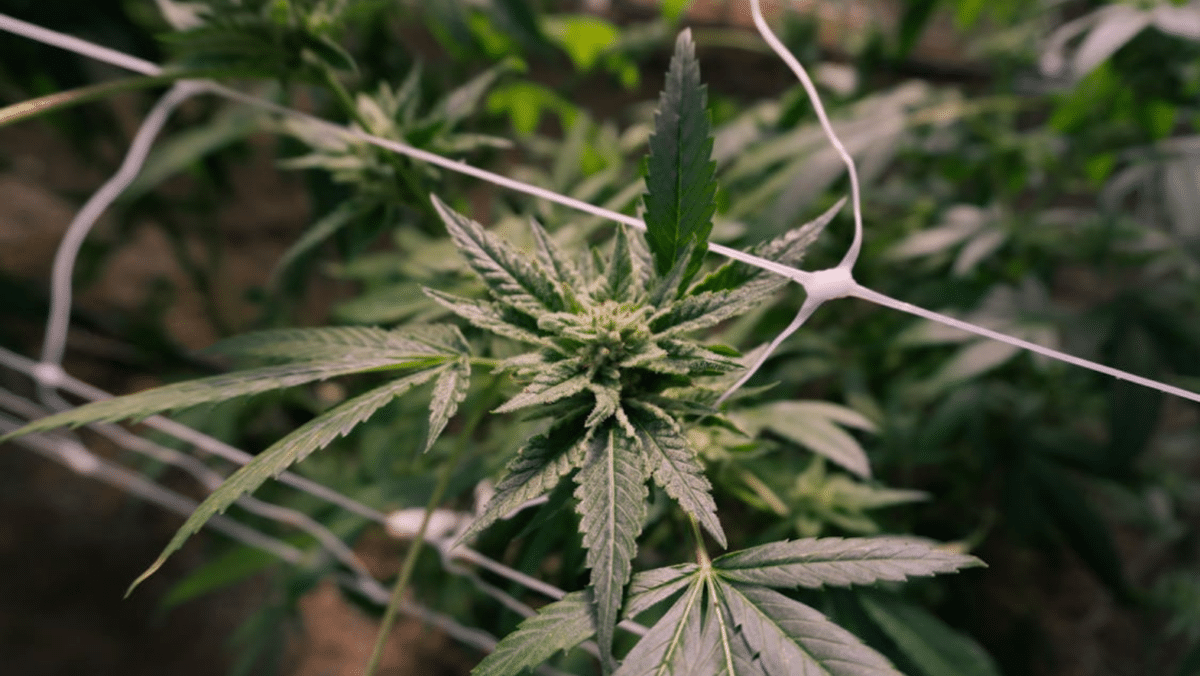Mastering Dispensary SEO in the Cannabis Industry: The Ultimate Guide
The cannabis industry has seen rapid growth in recent years as more states legalized medical and recreational marijuana. However, cannabis businesses face unique marketing challenges compared to other industries due to lingering stigma and restrictions placed on advertising channels.
Fortunately, search engine optimization (SEO) can help cannabis companies reach more customers through organic search visibility. This comprehensive guide will explore how dispensaries and brands can leverage SEO to thrive in today’s competitive cannabis marketplace.
Understanding Dispensary SEO: The Basics
What is Dispensary SEO?
Dispensary SEO refers to optimizing websites related to cannabis dispensaries, delivery services, and retailers to perform well in search engine results pages (SERPs).
By conducting keyword research, optimizing on-page elements, and building relevant backlinks, dispensaries can boost their organic rankings for terms like “marijuana dispensary near me.”
This strategy is vital for cannabis businesses due to Google’s prohibition on cannabis-related paid advertising. SEO services allow dispensaries to attract qualified customers searching online without paid promotions.
Why SEO Matters for Cannabis Brands
The legal cannabis market reached $25 billion in 2023 and is projected to grow to $73 billion by 2028 as more states adopt medical and recreational use laws. However, increasing competition means dispensaries must differentiate themselves through digital platforms.
SEO delivers a steady flow of organic search results from search engines like Google, allowing dispensaries to gain an edge over rivals.
Free exposure from SEO also builds brand awareness over time, converting browsers into loyal customers. With paid ads off-limits, SEO serves as the key vehicle for cannabis companies to thrive in a growing yet restricted industry.
Keyword Research for Dispensary SEO
Keyword research lays the foundation for a successful dispensary SEO strategy by identifying the right search terms to target. Taking the time upfront to conduct thorough keyword research will pay off in the form of increased rankings and traffic over time.
Finding Cannabis-Related Keywords
Dispensary owners can uncover valuable marijuana-related keywords using free tools like Google Keyword Planner and SEMrush.
In addition to medical conditions and strains, focus keyword research on location-based terms like [“dispensary near me”] and transactional keywords containing triggers of intent such as [“order online”] to capture local searches.
Sorting results by average monthly searches provides visibility into the most lucrative opportunities. Long-tail keywords containing modifiers offer lower competition but still yield quality customers when ranked.
Competitor Keyword Analysis
Analyzing the keywords ranking local competitors receiving organic traffic offers valuable insights. Tools like Ahrefs and SEMrush enable extracting domain ranking for marijuana-related terms.
Evaluating top-ranked pages on competitors’ sites using keyword-rich anchor text, title tags, and meta descriptions provides ideas for optimizing one’s website. Copying competitors verbatim is never recommended, but understanding successful optimization strategies helps craft a superior SEO approach.
On-Page SEO for Cannabis Dispensaries
On-page SEO focuses on optimizing elements directly on website pages, such as headings, text, links, and metadata. Following best practices allows search engines to understand page topics and their importance, boosting prospects for elevated rankings.
Optimizing Dispensary Product Pages
Inventory pages comprise a prime opportunity to capture customers’ commercial intent. In addition to detailed descriptions using targeted keywords, these pages need internal links from category and collection listings.
Photos with alt text containing the product name aid accessibility and SEO. Persuasive calls to action encourage browsers to add items to their carts. Paying close attention to products and strain pages can boost earnings substantially.
Meta Titles and Descriptions for Dispensary Websites
Compelling meta titles featuring the primary keyword attracts clicks, while meta descriptions supply context for featured snippets and snippets in search results on web pages.
Spicing up auto-generated titles and descriptions with keywords, benefits, and questions related to the dispensary helps increase click-through rates. Plus, tailored, customized metadata across all internal pages creates a better user experience for customers.
Local SEO for Cannabis Dispensaries
Given the legal risks associated with cannabis consumption, many consumers rely on local dispensaries for product recommendations and advice. This makes activities targeting local intent vital for dispensary SEO success.
Creating a Google My Business Profile
Verifying a Google Business Profile (GBP) and optimizing it with photos, service areas, hours, and other business attributes boosts consumer trust. Responding to all reviews, whether positive or negative, within 24 hours builds goodwill.
Uploading high-quality images regularly showing the dispensary interior and employees engages potential patients. Monitoring competing dispensaries’ GMB pages also provides competitive insights.
Optimizing for “Near Me” Searches
Geotargeting strategies allow dispensaries to rank for searches containing “near me.” Crafting locally oriented pages incorporating the city name and including the address in both the text and structured data helps tell Google this page relates to a specific location.
Weaving nearby cities into internal links and complementary pages connects the dispensary to the region as well. Collecting local citations from directories, maps, and review sites signals authority to local search algorithms.
Building Backlinks for Cannabis SEO
While links from .edu and .gov domains carry the most weight, securing bookmarks from within the cannabis industry establishes credibility. Tactical outreach for quality, dispensary-relevant backlinks forms an integral piece of any SEO strategy.
Why Backlinks Are Essential for Dispensaries
Link building establishes trust with search engines by having other authoritative sites point to a dispensary’s website. This third-party endorsement signals a page’s importance within its topic.
The number and quality of backlinks directly factor into ranking decisions, so dispensaries ignoring links risk losing out to competitors engaging in backlink development.
How to Earn High-Quality Backlinks
Targeting industry-specific directories, cannabis publications, and medical websites fosters contextual links. Creating guides, tools, and evergreen content designed for linking while also benefiting customers provides an asset for link building.
Personalizing outreach emails with value propositions tailored for each site increases response rates. Don’t worry – linking to relevant directories need not violate Google’s webmaster guidelines against unnatural linking if conducted naturally.
Content Marketing Strategy for Dispensary SEO
Informative, educational blog posts and landing pages related to cannabis strains, consumption methods, and health topics keep visitors engaged for longer durations. This improves average session durations and time on site, positively signaling user experience to Google.
Blogging to Boost Dispensary Traffic
Regular blog content establishes domain authority while supplying fresh pages that search engines can index. Popular topics include guides on the medical benefits of different cannabinoids, reviews of new products in the dispensary, and state-specific regulations.
Scheduling blog posts optimized for recurring holidays and events drives consistent organic traffic. Creating a content calendar ensures consistent publishing without sacrificing quality.
Creating Educational Content for Cannabis Consumers
Cannabis buyers often lack experience in choosing products and accurate knowledge of their effects. Educational how-to’s like “How to Use Cannabis for Migraines” not only satisfy informational searches but also nurture trust in the dispensary’s abilities.
Aligning long-form pieces to commercial-related searches in this way generates qualified leads ready to convert into sales. Attaching rich snippets containing benefits and linked relevant products enhances the click-through potential for these contents.
Technical SEO and Web Development
Ensuring Mobile-Friendliness and Page Load Speed
In the current digital age, having a mobile-friendly website is crucial for any cannabis business. Over 60% of searches happen on mobile devices, so it’s essential to ensure that your website is optimized for mobile users.
A mobile-friendly website not only improves user experience but also boosts your search engine rankings. Google’s algorithm favors mobile-friendly websites, and a slow-loading website can negatively impact your search engine rankings.
To ensure mobile-friendliness, use Google’s Mobile-Friendly Testing Tool to check if your website passes the test. You can also use Google Search Console to monitor your website’s mobile usability.
Additionally, ensure that your website’s page load speed is fast. Slow-loading websites can lead to high bounce rates and negatively impact your search engine rankings. Use tools like PageSpeed Insights to analyze your website’s page load speed and identify areas for improvement.
Encrypting Your Site (HTTPS)
Encrypting your website with SSL or TLS is essential for protecting your users’ data and inspiring confidence in your website. Google also favors HTTPS websites, and having an HTTPS website can improve your search engine rankings.
To encrypt your website, purchase an SSL certificate from a reputable provider and install it on your website. You can also use tools like Let’s Encrypt to obtain a free SSL certificate.
Submitting an XML Sitemap
An XML sitemap is a list of URLs from your website that you’d like search engines to crawl and index. Submitting an XML sitemap proactively tells search engines about your URLs instead of waiting for crawlers to find your pages.
XML sitemaps also help new pages get indexed faster. To submit an XML sitemap, create a sitemap using a tool like Sitemap Generator and submit it to Google Search Console.
Fixing Broken Links
Broken links can negatively impact your website’s user experience and search engine rankings. To fix broken links, use tools like Broken Link Checker to identify broken links on your website. Once you’ve identified broken links, update the links to point to the correct URL or remove them altogether.
Regularly checking for broken links can help improve your website’s user experience and search engine rankings.
By ensuring mobile-friendliness, encrypting your site, submitting an XML sitemap, and fixing broken links, you can improve your website’s technical SEO and web development. This can help improve your search engine rankings, drive more traffic to your website, and increase conversions.
Completing Your GMB Profile
In the business information section, be sure to include detailed categories mentioning “medical marijuana dispensary” or similar terms. Google favors specificity in categories.
List all service and product types, such as flowers, edibles, tinctures, etc. Upload high-quality photos showing inside and outside views.
Claiming Consistency: Many dispensaries operate on a reservation system. Explain this on your GMB page to avoid misleading customers who are expecting walk-ins. Make business hours very clear.
Responding to Reviews: Most dispatchers stipulate that no consumption is permitted on premises for legal compliance. Address this politely in response to preserve credibility. Thank all reviewers personally. Google penalizes inconsistent response times, so reply within a business day.
Posting Updated Photos: Keep visual content fresh quarterly minimum. Show new product selections and facility upgrades. Well-lit closeups perform best.
Implementing Calls to Action: Prominently feature a “Book Now” or similar button in your profile linking to online reservations. Optimize the button color and text for effortless click-throughs.
Social Media Integration: Link relevant social profiles to tap platforms’ search traffic. Posts sharing new GMB photos cross-promote listings naturally.
Local Awareness Campaign: Once your new GMB page is complete, alert local publications and groups for sharing and citations. Community ties demonstrate authority.
Tips for Dealing with Negative Reviews on Google My Business
- Respond politely and professionally within 1 business day to maintain credibility.
- Thank the reviewer for providing feedback and saying you aim to improve customers’ experiences.
- Address specific issues or complaints respectfully without accusations. For example, “We’re sorry to hear the line was long when you visited.”
- Offer remedies, like a future discount, to incentivize a return visit.
- Involve them respectfully in finding solutions, not blaming them. “What could we do better next time?”
- Don’t delete negative reviews ever, as Google may penalize the business.
- Provide context for unusually harsh reviews from frequent complainers.
- Balance criticism with acknowledgment of efforts to enhance service continuously.
- Invite reviewing problems directly in the future for timely resolution.
- End by thanking again for the feedback and emphasizing your commitment to high satisfaction.
- Monitor carefully for potential defamation requiring flagging to Google.
- Never leave reviews unaddressed, even if you disagree, to retain credibility.
Responding constructively and solution-focused helps maintain GMB’s trustworthiness. Negative episodes become opportunities by turning unhappy customers into advocates when handled respectfully and proactively.
Final Words: Measuring SEO Success for Cannabis Dispensaries
Tracking key metrics indicates SEO effectiveness while revealing underperforming areas needing adjustment. Regular reviews guarantee strategies stay optimized for the dispensary’s goals.
Key SEO Metrics to Track
Analyzing organic traffic, average position for targeted keywords, and conversion rates from SERPS in Google Analytics offers insight into strategy gains. Page speed, which affects customer experience and, therefore, rankings, merits monitoring as well.
Search Console uncovers top-performing pages and keywords requiring reinforcement. Together, these tools paint a holistic view of SEO progression.
Adjusting Your SEO Strategy for Long-Term Growth
If certain techniques fall short of goals, tweaking tactics or pivoting focus keys propels further results. Revisiting competitor analysis every six months keeps strategies ahead of industry shifts.
Continuing education on Google algorithm changes, and emerging best practices maintain an edge, letting dispensaries continually climb search results for expanding revenues. With data-driven refinement, SEO morphs from an initial investment into a permanent competitive differentiator.
Harnessing SEO’s capabilities helps dispensaries counter advertising bans while dominating local search. Cannabiz Boost leverages years of experience optimizing cannabis websites to increase organic visibility and drum up new customers for dispensaries.
Their tailored strategies empower businesses to control their digital presence and outmaneuver rivals online. Dispensary owners seeking sustained growth should consider partnering with experienced cannabis SEO experts.
FAQs on Dispensary’s SEO Strategies
What is Dispensary SEO, and how does it differ from regular SEO?
Dispensary SEO specifically targets keywords related to the cannabis industry and optimizes websites to perform well for searches containing terms like “marijuana dispensary near me.”
Compared to broader SEO, it involves extensive keyword research focused on cannabis and research into how Google treats the industry due to federal illegality concerns. Location-based optimizations also play a larger role for dispensaries.
How long does it take to see results from dispensary SEO?
Most clients collaborate with Cannabiz Boost to see tangible increases in organic traffic within 30 days. However, rankings are also dependent on on-site health, backlink profile, and other factors.
With ongoing optimizations, dispensaries have reported major increases after 90 days and continued improvements up to a year following the launch of their customized SEO strategy.
Can a cannabis brand advertise on Google?
No, Google does not permit any advertising related directly to cannabis or marijuana due to federal illegality issues. This prohibits dispensaries and manufacturers from using paid search campaigns, display ads, or other promotional opportunities on Google’s advertising networks. SEO remains one of the only viable options.
How important is local SEO for dispensaries?
Local SEO plays a critical role since dispensary customers search with geographical intent by entering queries near their location.
Ranking highly in Google Maps packs and showing up for searches containing the dispensary’s city/region can drive huge amounts of foot traffic. Prioritizing local optimizations through GMB profiles and building local citations enhances the chances of customers discovering a dispensary organically.
What are the key factors to consider for cannabis-related keyword research?
Some common aspects include location-based keywords containing the dispensary’s service area, keywords describing various strains, products, and medical conditions, long-tail keyword modifiers, commercial-related keywords signaling a purchase intent, and misspellings/synonyms of major keywords. Quality over quantity applies—it’s better to target fewer highly relevant keywords that offer a chance to rank than dispersing efforts too broadly.













